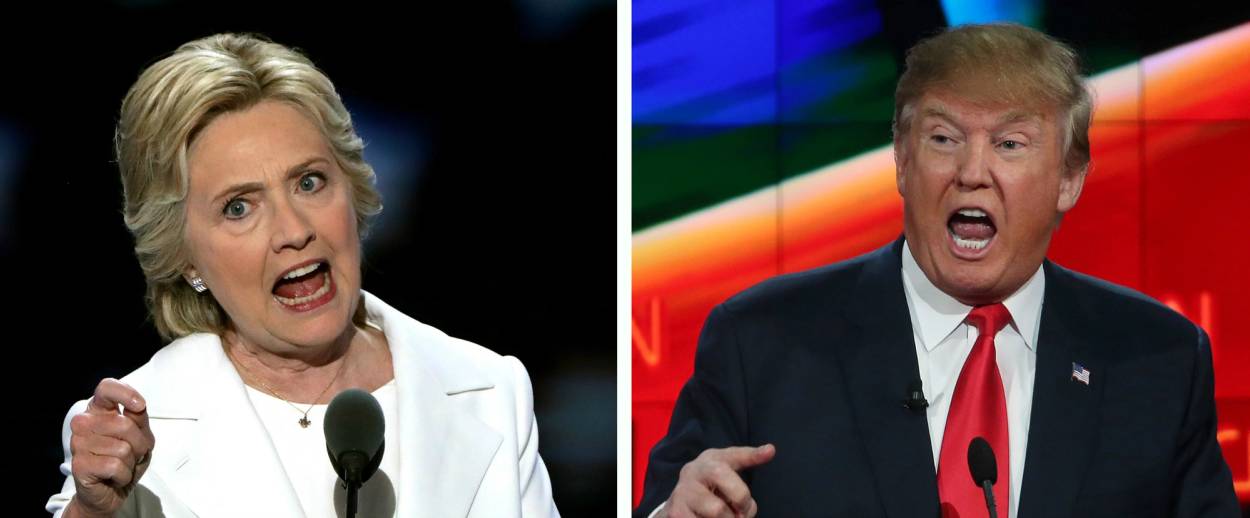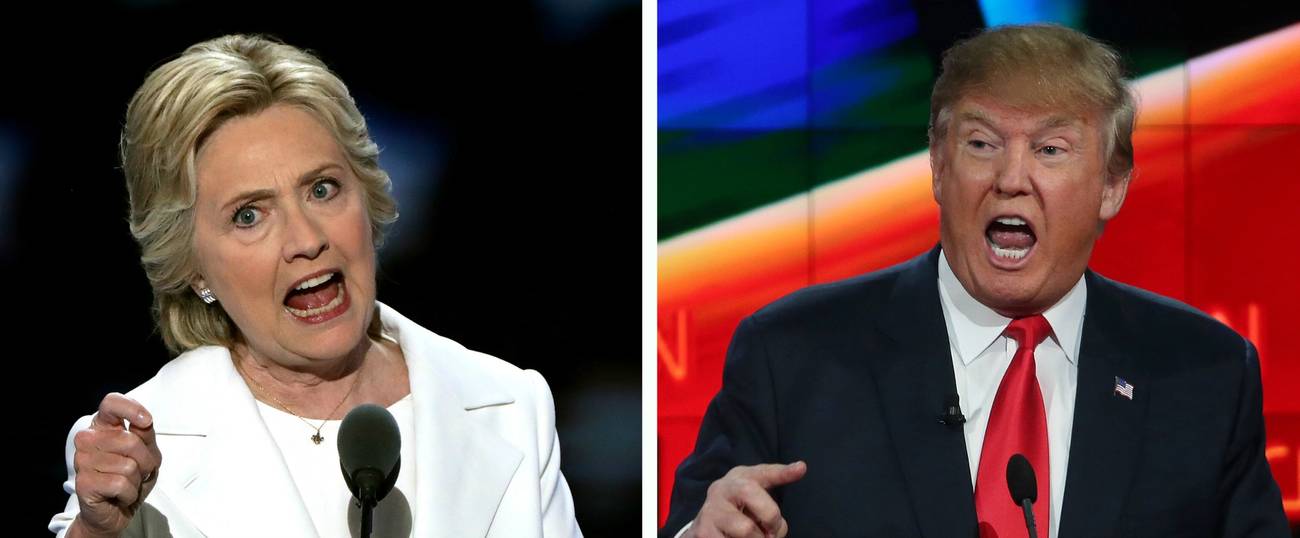On September 7, The Times of Israel published an interview with Norman Podhoretz, the 86-year-old former editor of Commentary, author of Making It (one of Tablet’s 101 greatest Jewish books), and perhaps the most influential figure in the early years of neoconservatism.
In the interview, Podhoretz said he planned on supporting Donald Trump for president more out of his own dislike for Clinton, for whom he has “no respect whatsoever…on any front,” than any real admiration for the Republican nominee. “While I can’t predict for you what Trump will do about anything,” he said, “I can predict for you what Hillary will do about everything.”
He singled out Trump’s opposition to the Iran deal out as a specific factor in his decision, calling the agreement “one of the most catastrophic actions that any American president has ever taken.” He also doesn’t want any Democrat overseeing the U.S.-Israel relationship. “I think there is no question that on Israel the Democrats can no longer be trusted,” Podhoretz said. “The liberal community, generally, and the Democratic Party, particularly, have grown increasingly unfriendly to Israel over 50 years, and it’s reached a point now where there are elements within the party who are positively hostile to Israel, and many who are simply cold and unfriendly.”
Podhoretz doesn’t really like or even trust Trump. But the real estate developer’s vulgarity pales in significance when compared to the fates of nations and the world, something that his fellow right-wingers just don’t seem to get. “Many of the younger—they’re not so young anymore—neoconservatives have gone over to the Never Trump movement. And they are extremely angry with anybody who doesn’t share their view,” Podhoretz said.
That younger generation apparently includes his son, current Commentary editor (and occasional Weekly Standard movie critic) John Podhoretz, who is one of conservatism’s most vocal Trump critics. The younger Podhoretz believes Trump would be a “disaster” as president, and has written that the New York businessman’s candidacy “says something very troubling about the Republican party, the conservative electorate, the mass media culture, and the United States in general.” (He declined to comment for this article). Norman Podhoretz told The Times of Israel that John “thinks that Trump is worse, and I think that Hillary is worse. He keeps trying to persuade me. He sends me things, articles, showing how bad Trump is. And I keep saying, ‘I know all this. I don’t need to be persuaded.’ “
The Podhoretzes’ differing views on the election draw attention to one of the more intriguing intra-conservative trends that Trump’s candidacy has exposed. Neoconservatism—with its emphasis on anti-communism, belief in a commanding American role in world affairs, skepticism towards the liberal cultural orthodoxy that emerged in the 1960s and ’70s, and confidence that global engagement can be an expression of American nationalism and self-interest—was one of the most important intellectual currents on the right for decades. Neoconservatism is still the urbane, somewhat northeastern alternative to the cultural conservatism of the religious right, and the nativist paleoconservatism of a Pat Buchanan, or, lately, a Donald Trump. But it’s an open question as to whether neoconservatism can survive the currents that the anti-trade, isolation-minded, and pro-Putin Trump has unleashed within the American right, or whether the neocons will be subsumed into—or cast aside by—a Trump-driven redefinition of what conservatives stand for and believe.
Depending on your level of interest in the finer points of American political factionalism, the debate among conservative intellectuals over whether to support Trump is either one of the most or least interesting sidebars of the election season. The pro-Trump argument is encapsulated in a recent pseudonymous essay in the Claremont Review of Books excoriating anti-Trump conservative opinion-makers for being insufficiently panicked about the supposed liberalism-induced crisis in American life, thus making them stealth supporters of Hillary Clinton and the left-wing status quo. On the other side stand conservatives who are horrified by Trump’s behavior and supposed lack of preparedness for the office, along with conservatives of various stripes who are both horrified by Trump and disagree with him on nearly everything.
This debate has raged within and between conservative publications, institutions, and ideological factions. The fact that it’s playing out within a single family highlights its generational aspect: The first wave of post-Goldwater conservatives were reared on the high-stakes, civilization-defining ideological warfare of the Cold War, and on no-less urgent and fractious debates over the legacy of the social and political upheavals of the 1960s. A Trump presidency might be unpleasant, but a lapse into to the chaos, decadence, complacency, and loss of national purpose that a conservative of Podhoretz’s vintage associates with the American left would be a higher-order disaster. Anti-Trump conservatives don’t tend to downplay the implications of this year’s populist revolt in American politics, or to soft-peddle the possible consequences of a Trump presidency. But for a host of reasons—including a Burkean confidence in social continuity, the strong likelihood of a Clinton victory, and a general anxiety over what the Trump adventure might mean for the long-term viability of their deepest and most sincerely held-beliefs—they aren’t exactly eager to view this election as a clash of historical-level forces, either.
The pro-Trump and anti-Trump conservatives have irreconcilable views over what the upcoming election really means for America and the world, and it’s a debate that’s unlikely to end of November 8th, regardless of who the next president is.

